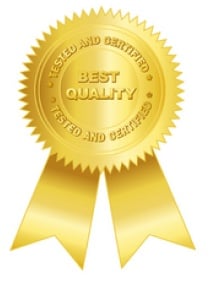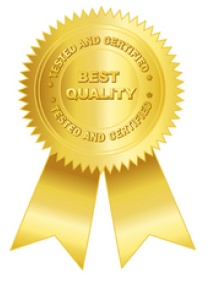ICF Credential vs. IAC Life Coach Certification

 I interviewed my friend and colleague, Donna Steinhorn, IAC MMC, ICF PCC, on the difference between ICF and IAC life coach certification in a recent live webinar. Unfortunately, the recording was no good, which is one of the of the many reasons that attending a webinar like this live is always your best option.
I interviewed my friend and colleague, Donna Steinhorn, IAC MMC, ICF PCC, on the difference between ICF and IAC life coach certification in a recent live webinar. Unfortunately, the recording was no good, which is one of the of the many reasons that attending a webinar like this live is always your best option.
The feedback from coaches who attended the interview has been awesome. So I'm going to add a few highlights here, in case you missed it.
The two organizations, themselves, are of course, the ultimate authorities on what they do and they change their policies from time to time. So if you're looking for highly detailed info, visit their respective web sites. The ICF's is coachfederation.org and the IAC's is certifiedcoach.org.
Donna has been deeply involved in coach training and certification for many years and is one of only a handful of coaches who have both ICF and IAC coach certifications, which is why I chose her for this interview ~ that, and the fact that Donna is fun to talk with.
Both Donna and I have been on the coach training and certification bandwagon for eternity (Donna is a member of SCM's Board of Advisers) - and we're both rebels, so we have a shared skepticism, as well as support of these two leading professional organizations and their respective credentialing processes.
We began our conversation by noting that there are limitations to both ICF and IAC coach certifications. Each has its own coaching competencies (or masteries, as the IAC calls theirs). Each definitely has its own coaching style, which you need to be able to demonstrate. Neither style encompasses every possible way to coach brilliantly; they're just doing the best they can.
So why are there two professional coaching organizations and certifications? Actually, there are zillions of them - some completely bogus - but these currently are the most well-known. Oddly, the same man, Thomas J. Leonard, the 'Father of Professional Coaching', founded both the IAC and ICF. Thomas founded the ICF in 1995 and later, the IAC in 2003, just before he passed away.
ICF credentialing, as it's called, emphasizes ICF coach training, mentoring and experience, as well as an online test and demonstration of coaching skill. Thomas sought to streamline the process of certification with the IAC, which emphasizes the results of coach training, mentoring and experience, rather than the documentation of it. This makes the IAC certification process a bit simpler, but it's by no means easier, because coaches need to demonstrate masterful coaching skills. Only about 25% of coaches who apply for IAC Coach Certification pass on the first try.
The ICF has three levels of coaching credentials: The Associate Credentialed Coach (ACC), The Professional Credentialed Coach (PCC), and the Master Credentialed Coach (MCC). The IAC currently has only one certification, the Certified Coach (IAC-CC), but from what I've observed, the level of coaching skill required by the IAC is roughly comparable to the ICF MCC. [UPDATE: the IAC eventually added another 'intermediate' level of certification, as well as a basic "practitioner" level. And the renamed their original certification the Master Masteries Coach.]
Finally, the ICF has two pathways for credentialing: The portfolio route allows you to get your coach training anywhere [UPDATE: This one is being eliminated in 2022] and the accreditation path requires you to study at an ICF accredited coach training school. The IAC doesn't require demonstration of coach training, just the results of it: masterful coaching skills. I know most IAC Certified Coaches and I believe all of them have had substantial coach training and/or mentor coaching. Donna says there may have been one coach who passed without being trained.
I asked Donna if there were any hidden costs to getting certified by either organization. She mentioned the mentor coaching requirement by the ICF, which would cost you about $350 - 400 per month, but Donna doesn't consider that a hidden cost, since all coaches need to have their own coaches at all times. Personally, I don't think anyone needs a coach every minute of their life, but coaches are foolish if they don't work with successful coaches of their own. I worked with two excellent coaches while I prepared for IAC Coach Certification.
What, in Donna's opinion, is the best benefit of getting certified? She considers the coach directory on the ICF website, which only lists ICF credentialed coaches, to be by far the best benefit, because it brings her a steady stream of potential clients. We agreed that the IAC would do well to offer such a benefit to its own membership.
Finally, which coaches need certification most? Donna says corporate coaches and perhaps executive coaches, since companies usually want to see credentials. She doesn't believe life coaches need to be certified, but I've seen anecdotal evidence that clients are screening life coaches more carefully than they used to. Even new life coaches are telling me that potential clients ask about training and certification.
Potential coaching clients are asking more questions than they used to about their coaches' backgrounds. Increasingly, they are looking for evidence-based coaching and neither the IAC's nor the ICF's certifications are based on peer-reviewed research.
School of Coaching Mastery has been accredited by the ICF and licensed by the IAC, but our Certified Positive Psychology Coach program now prepares coaches for the IAPPC's certification.
Why? Because modern coaching needs to be informed by research and this is the organization that reflects that.
So there you have the Readers Digest version of the ICF Credentialing vs. IAC Life Coach Certification interview.
Join a program that prepares you for evidence-based certfication. Get started with this FREE fact sheet:


